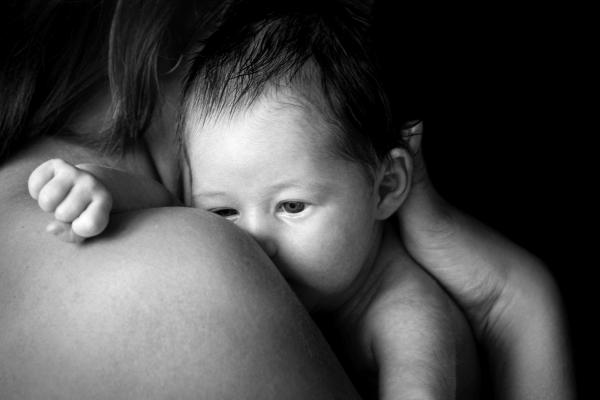Editor's note: On April 21, the Los Angeles Times ran a photo essay on mothers in Brazil whose babies were born with microcephaly, a condition linked to the Zika virus. This letter is in response to the story of Kalissandra de Olivera and her son Nicolas.
I woke up last night at 4:30 a.m. because my son was crying. His name is Joshua. He's about the same age as Nicolas, and just as loved.
I was tired, though, at 4:30. I walked from my bedroom into his and lifted him out of his wooden crib. He was lying on a mattress in a muslin sleepsack. He was a little hungry. I went back to sleep a half hour later.
I thought about you, because at 4:30 you had already been awake for at least an hour. Did you even go to sleep at all? The van came at 3:45 a.m. It was dark, and sometimes Nicolas slept and sometimes he cried. I saw you holding him as you both slept, exhausted, at Pedro I Municipal Hospital in Campina Grande, Brazil. You were so tired. I don't know if you have other children at home. I don't know if you are married or if Nicolas' dad takes him sometimes on the van to the hospital.
Nicolas' story is your story. The story of our children is always written on mamas' foreheads. When I saw you in this photo, your forehead was peaceful. Nicolas looks like you. But Nicolas has microcephaly.
Diseases don't read, but they understand social contracts. They kill and maim the poorest and weakest among us first: pregnant women, people without air conditioning, people who have to store water outside in case of shortages, places where mosquitoes breed and grow and bite and viruses swarm the placenta and maim a growing baby's brain.
Where I live, moms worry a lot. I guess moms worry a lot everywhere. But I didn't have to worry about Zika. It wasn't allowed into my neighborhood. Affluence and privilege blocked it, like they blocked cholera and starvation and polio and measles. We are so privileged, we think we're smarter than we are.
We have other diseases here. Anxiety and depression and meanness and isolation. Not that you don't have those too, but maybe ours grow because we're so isolated from you and from each other. From our sister moms across the world who remind us of the sacred trust between a mother and her baby — who remind us to trust ourselves and trust our love more than the Internet.
You hold your head up with your hand on one exercise ball. You heard once these were good for sit-ups. Sometimes we use them to help Josh fall asleep.
Nicolas is rolling on his exercise ball with his therapist. His eyes are wiser than they're supposed to be for his age, for his Zika-ravaged brain. He's wearing a polo shirt with two buttons. Did you pack it in his bag? Did you dress him in it at 3 a.m. before the van came to pick you up and take you to the hospital?
I didn't see your diaper bag. How did you have time to pack it? How do you do it?
He looks perfect. He reminds me of Josh.
Maybe you're like me and you hate when moms use the word perfect because no one is perfect.
The appointment is over, and then it's the long wait and the long van ride back. Sometimes for my doctor appointments with Josh we have to wait 45 minutes. You wait hours — a day. I'm embarrassed of my complaining, my entitlement.
And still we are all, especially Nicolas, more complicated than we first appear.
There is no certainty with Zika, with microcephaly, with motherhood, with life. Maybe Nicolas will go to college. Maybe he'll need help his whole life to walk or feed himself.
In this waiting room at Pedro I Municipal Hospital, this small room filled with fake flowers, coffee, cake and broken scanners, mamas are laughing.
In a few weeks, or a month or two, maybe Nicolas will laugh, too. You'll hear it and forget everything else. You are a mom. Perversely, perhaps, the waiting room is a sanctuary — a place where motherhood is what it was meant to be. Women supporting each other. Babies crying and laughing and living. Imperfectly.
Your laughter, your support for each other, your refusal to quit in the face of fear, of Zika, of microcephaly, of despair: it is a revolutionary act. Mighty warriors have fallen down before in the face of much less.
Your laughter won't cure microcephaly. It won't cure hatred or injustice or the various geopolitical alignments, the cheating, the offshore accounts, the excesses, that left you vulnerable to Zika.
But God is watching you. The God who created Nicolas is the God who loves Nicolas is the God who transformed death on the cross into everlasting life.
The evil in the world — the Zika, the microcephaly, the injustice, the violence, the fear — it is all still there.
But God is transforming it. Your story is about love, and the courage and faith that turns death into life.
Rest well, Kalissandra. Rest well, Nicolas. Rise and bear witness.
Where, O Zika, is thy sting?
Got something to say about what you're reading? We value your feedback!

